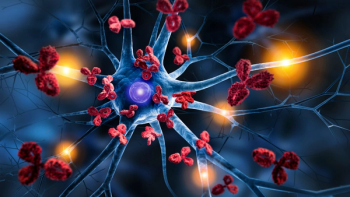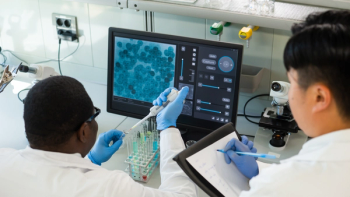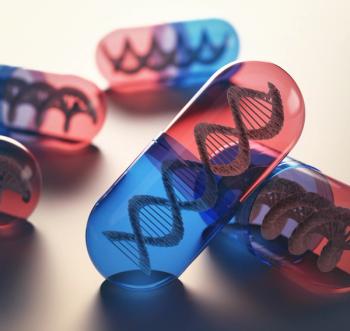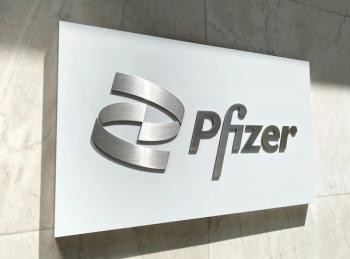
Partnerships
Latest News

Latest Videos

More News

Johnson & Johnson reached a voluntary agreement with the U.S. government to enhance patient access, lower drug costs, and expand domestic manufacturing.

Lilly’s acquisition of Ventyx deepens its inflammation-focused pipeline with a strategic push to secure differentiated oral therapies aimed at chronic, immune-mediated diseases with significant unmet need.

GSK’s multi-year collaboration with Helix signals a push to embed genomics and real-world data into drug development, positioning precision medicine as a core engine for target discovery, clinical design, and long-term portfolio differentiation.

Sanofi and Earendil Labs' new collaboration pairs large-scale development capabilities with AI-driven protein discovery to accelerate next-generation bispecific therapies.

BioMarin’s $4.8 billion all-cash acquisition of Amicus Therapeutics significantly expands its rare disease portfolio with established Fabry and Pompe franchises, adds late-stage pipeline upside, and is expected to immediately accelerate revenue growth while strengthening long-term financial performance.

A pair of deal announcements underscore continued strategic reshuffling in biopharma, with Harbour BioMed striking a potentially billion-dollar collaboration with Bristol Myers Squibb to advance next-generation multispecific antibodies, while VYNE Therapeutics agreed to merge with Yarrow Bioscience to create a well-capitalized company focused on developing a first-in-class TSHR antibody for Graves’ disease and thyroid eye disease.

The agreement grants Sanofi with development and commercialization rights for ADEL-Y0, a potential first-in-class antibody therapy for Alzheimer's disease, and related backup compounds.

Lunit’s new collaboration with Daiichi Sankyo integrates AI-driven digital pathology tools into oncology translational research, aiming to accelerate biomarker discovery, refine patient stratification, and improve the efficiency of clinical development

Sobi’s $1.5 billion acquisition of Arthrosi Therapeutics positions the company for long-term growth and strengthens its gout treatment portfolio.

A successful transition from clinical development to commercial launch in cell and gene therapy requires early, structured collaboration with health systems to address operational, financial, and workflow challenges that shape real-world patient access and therapy adoption.

Pharmaceutical collaborations expand as Flagship Pioneering expands its partnership with GSK, signing agreements with ProFound Therapeutics and Quotient Therapeutics, while Valo Health teams up with Merck KGaA to tackle disease challenges.

Abbott's acquisition of Exact Sciences enhances cancer diagnostics and expands access to innovative screening and treatment solutions for patients worldwide.

GSK's collaborations leverage cutting-edge technology and scientific expertise to advance and accelerate research.

Avadel Pharmaceuticals accepted Alkermes enhanced acquisition proposal for $2.3 billion, focusing on a key treatment's approval for added value.

Eli Lilly partners with ABL Bio to research innovative therapeutics and expand its portfolio in cancer and CNS diseases through advanced bispecific antibody technology.

The agreement brings Cidara’s potential flu vaccine under Merck’s umbrella.

Bristol Myers Squibb and Sarah Cannon Research Institute expanded their strategic collaboration, leveraging SCRI’s Accelero model to streamline operations, embed studies within community care settings, and extend cutting-edge oncology therapies to more diverse patient populations.

How the Metsera deal extends Pfizer’s 25-year blueprint for growth.

Eli Lilly is partnering with MeiraGTx to develop and commercialize ophthalmology gene therapies, and with SanegeneBio to advance RNAi-based treatments for metabolic diseases, with the agreements collectively valued at more than $1.6 billion in potential milestone payments.

Metsera finalizes a $10 billion merger with Pfizer after rejecting Novo Nordisk's bids amid legal concerns to ensure shareholder value and regulatory safety.

Boehringer Ingelheim and Merck focus on innovative biologic and oncology advancements, driving collaborative growth through new R&D funding, and development and commercialization agreements.

Pharmaceutical collaborations thrive as Manifold Bio, 4DMT, and Kaigene forge strategic partnerships to advance innovative therapies for neurological and autoimmune diseases.

Pfizer's lawsuits come after Novo Nordisk proposed an unsolicited acquisition proposal to Metsera.

Novo Nordisk proposes a $9 billion acquisition of Metsera, prompting responses from both Metsera and Pfizer amid ongoing merger discussions.

Eli Lilly and NVIDIA unveil a groundbreaking AI supercomputer, revolutionizing drug discovery and accelerating patient care through advanced technology.




